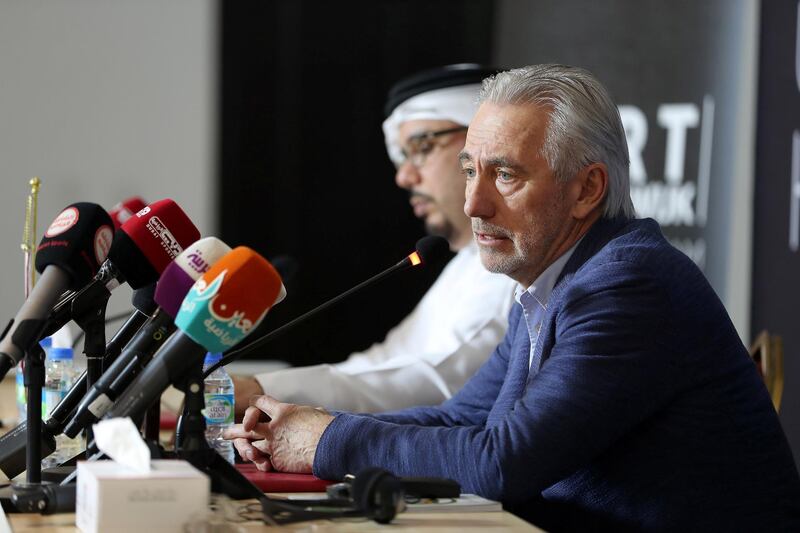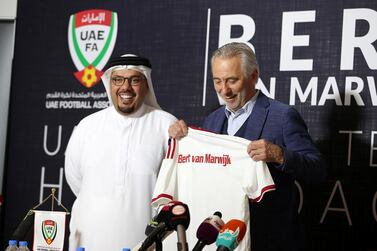The UAE concluded their latest training camp on Tuesday with a 0-0 draw against Syria in Abu Dhabi, where new manager Bert van Marwijk watched from the stands. Here, we look at some of the key issues facing the Dutchman as his work begins in earnest.
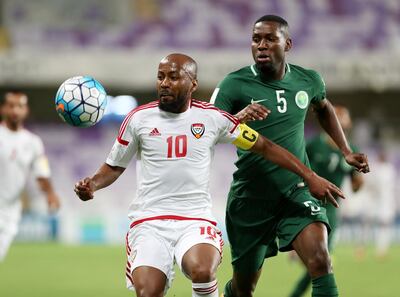
Making decisions on the old guard
The UAE’s squad for this year’s Asian Cup featured many players on the wrong side of 30.
Chief among those, experienced defender Ismail Ahmed and veteran forward Ismail Matar. Both now 35 – Matar turns 36 next week – the international careers of two of the side's greatest contributors in recent history appear to be at an end. Matar told The National as much last week.
Defender Walid Abbas, meanwhile, is 33; centre-back Fares Juma and winger Ismail Al Hammadi both 30. A year younger, Amer Abdulrahman should be enjoying his peak years, but injury and a discernable loss of form has hampered the midfielder for too long.
For that, Van Marwijk needs to settle on who can conceivably still play a part on what he hopes is the road to World Cup 2022. Beginning in September – the qualification draw is made next month – the path is sure to be arduous.
Yes, experienced heads will be required. But finding the balance between know-how and the impetus provided by new blood will be vital.
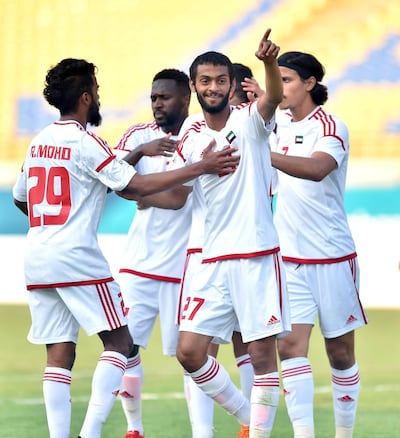
Promoting from the talent pool below
The timing of the Under 23s’ success seemed particularly apt.
On Tuesday, Maciej Skorza’s side held Saudi Arabia to a 1-1 draw in Riyadh, finishing top of their group in the penultimate qualifying round for the Tokyo Olympics. In January, they will contest the 2020 AFC U23 Championship in Thailand, with a place at the Games at stake.
The UAE have only once before made the Olympics, at London 2012, when the present-day 'Golden Generation' promised much. For sure, the current crop has standouts, led by goalkeeper Mohammed Al Shamsi, defenders Ahmed Rashid and Khalifa Al Hammadi, midfielder Mohammed Al Attas and wide forward Zayed Al Ameri.
It is a continuation of the work done at last summer's Asian Games, when the team took bronze.
Outside of that, they are other emergent players for Van Marwijk to consider. Baniyas centre-back Hassan Al Muharrami impressed the new manager in Tuesday’s friendly against Syria, while Sharjah’s Saif Rashed has an Asian Cup under his belt.
With nine rounds remaining in the Arabian Gulf League, Van Marwijk has ample time to find more fresh faces.
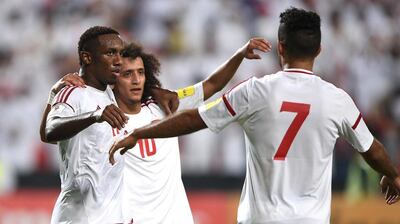
Reinstating “Amoory” as the focal point
Asked about his new team at his official introduction last week, Van Marwijk was reluctant to mention particular names. Except one: Omar Abdulrahman.
“I know he is injured,” Van Marwijk said. “But those are the players who can make a difference. I always say a team needs weapons and the UAE have a few.”
No doubt, Abdulrahman remains the UAE's greatest. His recent record with the national team, though, is chequered. Since the double penalty miss in the 2018 Gulf Cup final, and the controversy surrounding an alleged breaking of curfew in Kuwait, the playmaker has barely featured.
He was distracted last summer by his protracted free transfer to Al Hilal, then sidelined since October by a serious knee injury. The former Al Ain captain has slipped, somewhat, from view.
However, Abdulrahman's reintegration, once fully rehabilitated from surgery – “Amoory” is not expected to play again this season – is essential. As is finding a system to accommodate the 2016 Asian player of the year.
It represents another conundrum. Although what a conundrum to have.
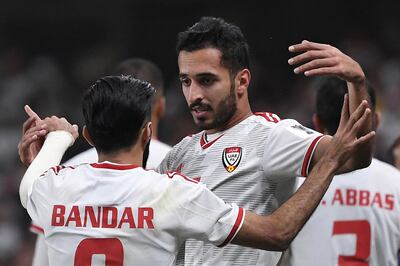
Sourcing an understudy striker
Ali Mabkhout has for some time been the UAE’s go-to goalscorer.
The Al Jazira striker won the Golden Boot at the 2015 Asian Cup; he scored another four in January, in the UAE's run to the semi-finals on home soil. It made him the third highest-scorer in tournament history.
Domestically, Mabkhout is without peer among his compatriots. He struck 33 goals in the 2016/17 season to fire Jazira to the league title, setting a professional-era record. This season, he is out in front – of everybody – once more, with 17 goals in 15 matches.
In a division headlined by foreign forwards, Mabkhout strides at its summit. However, despite the Asian Cup haul, Mabkhout’s performances for the UAE have dipped.
Often, he was wasteful in front of goal, wayward in his passing and weary in possession. Without marquee teammates Omar Abdulrahman and Ahmed Khalil, the weight of responsibility felt at times too heavy, although Alberto Zaccheroni’s tactics frequently left Mabkhout isolated.
Still, Van Marwijk must find an able deputy, especially if Khalil’s fitness issues sustain. At present, there is no obvious candidate.
